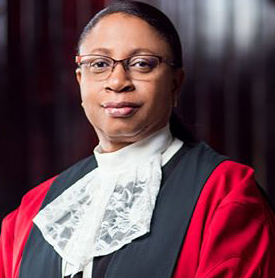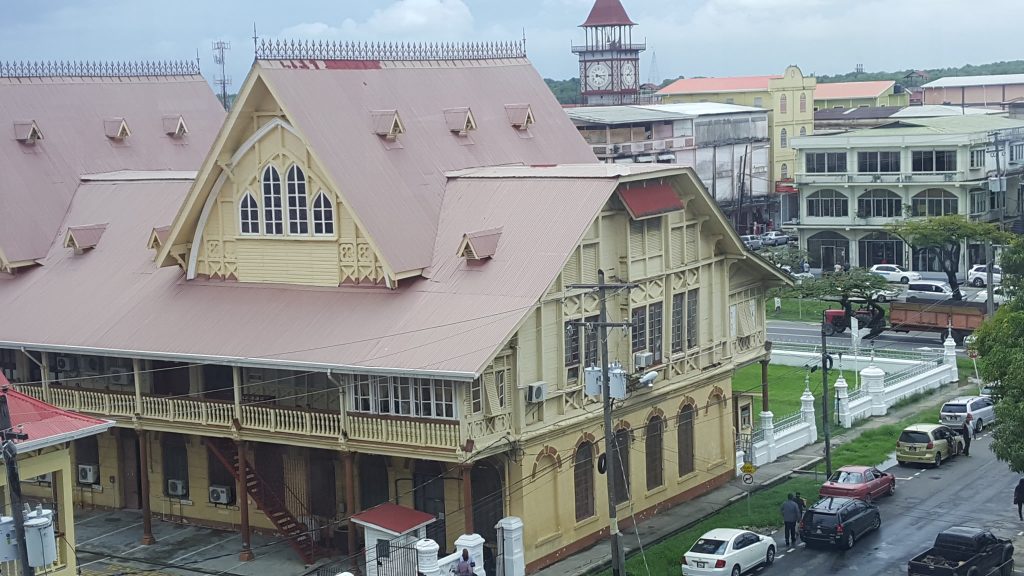December 4, 2020
A number of prominent individuals and organisations in a letter to this newspaper on Wednesday are among those who have asked about the treatment of 26 Haitian nationals currently held at the Hugo Chávez Centre for Rehabilitation and Reintegration. The Ministry of Home Affairs has said that the Haitians were found after the police conducted two search and cordon exercises in Georgetown and Region Ten. Some were discovered in a city hotel, while the others were removed from a minibus on the Linden-Mabura road. There were seven children in the group who were subsequently separated from the adults.
There are a few facts of relevance here. The first is that they seem to have entered the country perfectly legally, and the second is that since last year they have been entitled to the same courtesy as other Caricom nationals, namely, a stay of six months. The third is that they have not committed any crime, or been accused of committing any crime. That notwithstanding, after three weeks in the Centre, they are now to be deported prior to which they are still to be held in custody. The matter took a turn last evening when the Chief Justice issued a conservatory order staying the deportation until the hearing and determination of the case presently before her.
The government case is that the Haitians were found in the course of an investigation into a suspected human smuggling and trafficking-in-persons ring, and that five people had been arrested in connection with that. The government earlier suggested that the 26 would-be migrants might have been the victims of trafficking, something which they have denied, but even if it were so, as the letter on Wednesday pointed out, they then would be the victims, not the perpetrators, so why would they be treated as the guilty party?
Furthermore, it has been reported that they are to be deported on the grounds that they allegedly lied about where they would be staying during their visit to Guyana. We carried a story in our Wednesday edition, where it is said one application stated that on presenting himself to immigration officers at the point of entry, a Haitian national “failed to answer truthfully a question posed by the immigration officer in that there was a false representation of where he was staying, in contravention of Section 9(1) (a) of the Immigration Act.” As a consequence he is now deemed a “Prohibited Immigrant,” and Orders authorising his deportation, as well as that of his compatriots, have been granted by a magistrate.
This is all very strange since it comes weeks after the Haitians were originally held. Is it the case that the authorities didn’t have a justification for deporting them initially and were casting around for some legal basis on which to proceed? In addition, their attorney, Mr Darren Wade, held the action on the part of the authorities to be “arbitrary”, and told this newspaper that, “They [his clients] were not informed of, nor allowed to respond to the charge. There is no evidence I have seen supporting the contention made in the applications.” If that is so, it is a clear breach of their entitlement to natural justice, as he maintained.
The applications were made on the same day that Mr Wade approached the High Court to have the Haitians released from “protective custody”. Is this a coincidence, or is it a case that the AG’s office was aware that they might be released, since the government lacked legitimate grounds for holding them?
There are clearly people-smuggling gangs active in Guyana, and they move not just Haitians, but Cubans as well, while trafficking of a more sinister kind probably targets Venezuelan women above all others. The last mentioned was admitted by then Immigration Minister Winston Felix last year, although he strenuously denied that there was any evidence of people smuggling, and had called the reportage on the subject “xenophobic”. This was despite the fact that there was evidence hundreds of Haitians had entered the country and had left, but had not left legally. He cited our porous border and limited human resources as hampering the law enforcement agencies from confronting the illegal movement of persons across our frontiers.
Then, as now, many of the Haitians crossed into Brazil at Lethem, although often they did not stay there, filtering out further afield on the continent, or attempting to enter French Guiana by a different route from Suriname. They no more stay in Suriname than they do in Guyana. In the current instance of the 26 Haitians, this newspaper was reliably informed that it was thought they were being smuggled into French Guiana, while one source was said to have revealed that during interrogation one of the women had told investigators she had been given two children at Port-au-Prince airport to take to French Guiana.
This government even when it was in opposition, has always been overly suspicious of Haitians, although not, it seems, of Cubans, who prior to the epidemic were far more in evidence in the city, at least. There are no pockets of Haitians hiding anywhere, because their language would give away their presence immediately. For them Guyana is simply a conduit to somewhere else.
Yet last year then Opposition Leader Bharrat Jagdeo worked himself into irrational mode by holding forth on the coincidence between the house-to-house registration exercise and the sudden increase in the number of Haitians entering Guyana. That increase was due entirely to the dropping of the visa requirement for entering this country, and it did not cause Haitians to settle here, let alone register to vote.
According to Joseph Handerson writing in the journal Diálogos recently, Haitian migrants do not have Guyana in their sights as a settlement prospect (neither Suriname), because for one thing the minimum wage is too low to allow them to send money home to their families. Could it be, however, that the ethnically conscious PPP/C is anxious about the possibility that when this country becomes a successful oil economy, it will be more attractive to Haitians, who, it is assumed, will become opposition voters? Is this whole current episode an exercise to discourage Haitians from coming here, even if at the moment it is just to pass through, because at some future point they might want to stay?
No one wants to discourage the government from seeking to stamp out people smuggling, and in particular, the trafficking of women, although as Mr Felix claimed the last mentioned is likely to be a much greater problem in relation to Venezuelan refugees than any other group. The problem with regard to the Haitians is that the administration would probably need to work with other nations if it is to have any hope of success in relation to smuggling. Bringing dubious legal cases against Haitians en route to somewhere else will not do it.
Last year The Haitian Times reported that 30-50% of the immigrant population in French Guiana comprised Haitians. The paper went on to say that getting Haitians to French Guiana was organised from within Haiti itself, “where a vast network of Rakete (smugglers) and Ajans (agencies) extends to Suriname, French Guiana and beyond.” The Times went on to say that the influx into Guyana is because Haitian migrants do not require a visa to enter the country, adding that the cost of getting to Cayenne has decreased: “more people,” it said, “can afford to pay the smugglers.”
Wednesday’s letter reminded the government of the CCJ’s Shanique Myrie judgement against Barbados. Among several other things, the authors pointed out that if the Haitians have a six-month stamp in their passports, then the Immigration Department had the opportunity to refuse entry as discussed in the Myrie case, but saw no reason to do so. Perhaps the AG’s office might wish to look at the case again.
They also wrote that Guyanese of all people should be sensitive to negative stereotyping, and not impose it on others. “We are each other’s keepers,” they said, “and should treat others the way we would like to be treated.”





